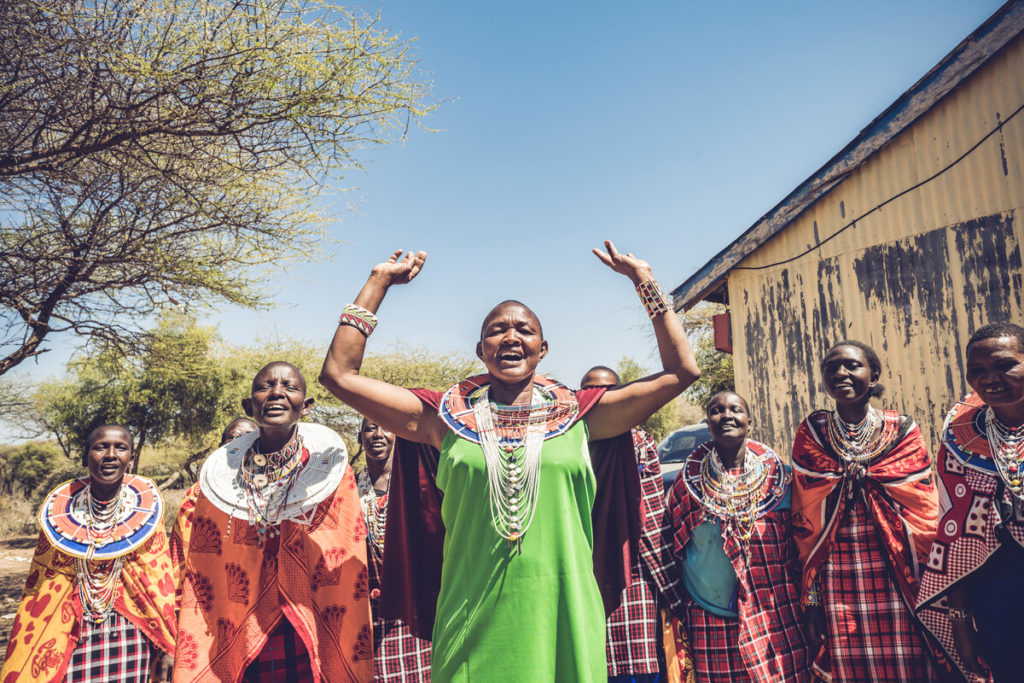CHS self-assessment delivers impact for World Relief, delivering better help to people in crisis
Two years after their first verification process kick-started changes to how they work, CHS Alliance Member World Relief are seeing tangible results. World Relief recently completed their second self-assessment against the Core Humanitarian Standard (CHS) which sees the majority of their CHS Commitment scores rising. This means they are delivering better aid to those they help
What did you make of the results from World Relief’s first CHS self-assessment?
After completing our first CHS self-assessment in 2019, World Relief discovered that many key processes and protocols for quality and accountability were happening at the country office level. Yet we lacked harmonisation, formalisation and standardisation to ensure consistent results across the whole of the organisation.
What has been the overall effect of World Relief verifying against the CHS?
World Relief has seen a great culture change take place since we first started measuring improvements against the CHS, these are broadly:
- Enhancing programme quality and accountability: The CHS is a vital tool to build internal awareness of what quality and accountability looks like among all staff. Having this universal Standard, which looks at aid from the perspective of people receiving it, has increased buy-in and coherence of what we are aiming for as an organisation. By verifying against the CHS we are seeing strengthened core policies, systems and practices that bring greater quality and accountability to all aspects of our work with communities and people affected by crisis.
- Continuous improvement and transparency: Undertaking the self-assessment allows World Relief to find our strengths, weaknesses and areas for improvement. By evaluating our performance against the CHS regularly we can get a clear temperature check of how well we are performing, as well as seeing how we compare to other organisations and the sector.
- External compliance and funding opportunities: Being verified against the CHS gives us public recognition of being committed to delivering support to a global standard, positioning World Relief to sustain and grow our revenue. Donors want to feel confident that their funding is implemented in an effective way that ensures quality programmes and accountability to affected communities.

World Relief, Kenya Kajiado, 2021 Credit: Sean Sheridan.
What changes did you make because of the first CHS self-assessment and what impact have these had?
There really is not enough space to mention all the changes World Relief made following the self-assessment and many other activities are still underway! However, notable improvements we are most proud of include:
- Implementation of an organisational Complaints and Feedback Mechanism (CFM): World Relief developed and implemented a comprehensive CFM across all country offices, ensuring effective channels for community engagement and response.
- Introduction of new policies: World Relief created several new policies, such as Safeguarding, Staff Complaints and Grievance, Community Complaints and Feedback, Disability Inclusion and Environmental Impact. These new policies strengthen our operational standards and help us to meet best practices consistently throughout the whole organisation.
- Recruitment of new staff: World Relief hired new staff members in key areas such as Knowledge Management and Global Safety and Security to bolster ability and support organisational growth. We now have the human resources to make sure our policies are understood and acted on at every level of the organisation.
Did you see any changes in your second CHS self-assessment because of this work?
Conducting the assessment was smoother the second time around, resulting in a significant increase in response rates. For instance, in 2020, we received responses from 165 staff, 60 community members, and 19 partners. In 2022, the number of responses rose to 723 staff, 127 community members, and 78 partners. It was fantastic to gather so many diverse views on how World Relief works, especially from the people we help.
After completing a second CHS self-assessment in 2023, World Relief saw improvements across most of the indicators that make up the Commitments, with a few staying the same or decreasing minimally.
However, some areas showed continued weakness in our second self-assessment. For us this underscores that some initiatives take time to see full fruition and remind us we need to keep pursuing improvement.
CHS Alliance recognises there are many types of organisations at different stages of their journey to meet their CHS Commitments. That is why the CHS Alliance Verification Scheme offers three different approaches to verifying against the CHS.
These are:
- Self-Assessment. Self-assessment is a learning exercise. It helps organisations understand their ability and performance against the CHS and builds an improvement plan to make the services they deliver work better for people affected by crisis.
- Independent Verification. Provides organisations with an external, independent assessment of ability and improvement against the CHS.
- Certification. Offers organisations a forensic diagnostic of the degree to which they have applied the CHS.
Independent Verification and Certification are conducted by an accredited, third-party auditor – currently this service is offered by HQAI.
Learn more about how verifying against the CHS can transform your organisation for the people you support.

